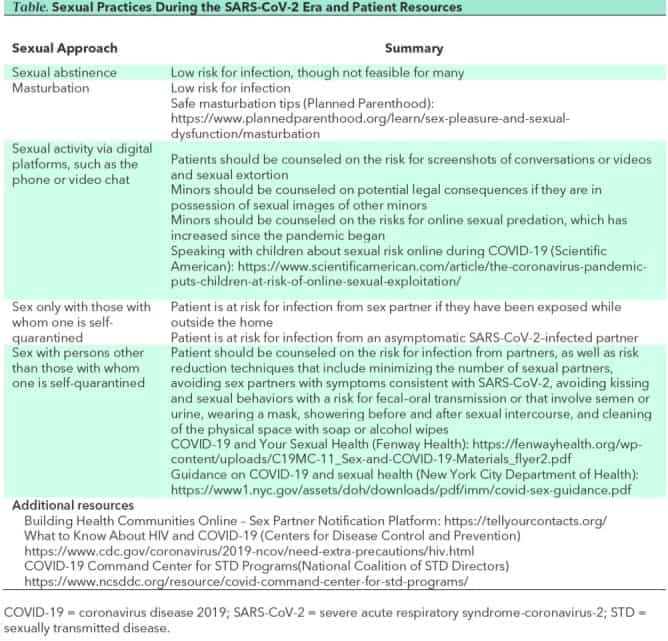
Those who choose to hook up during the coronavirus pandemic should wear masks during sexual activity — and avoid kissing, oral-to-anal acts, and anything that involves direct contact with semen or urine, according to a new study.
The study, published recently in the Annals of Internal Medicine, also recommends showering both before and after sex, and cleaning the space used with alcohol wipes or soap.
In recent months, many health experts have advised against having sex with anyone outside your household during the coronavirus pandemic. However, the authors of the study acknowledge that abstinence may not be “an achievable goal” for everyone, including some in the LGBT community.
“Messaging around sex being dangerous may have insidious psychological effects at a time when people are especially susceptible to mental health difficulties,” the researchers write in an abstract. “Some groups, including sexual and gender minority (SGM) communities, may be particularly vulnerable to sexual stigma, given the historical trauma of other pandemics, such as AIDS. Abstinence recommendations may conjure memories of the widespread stigmatization of SGM people during the AIDS crisis. For the population at large, a recommendation of long-term sexual abstinence is unlikely to be effective, given the well-documented failures of abstinence-based public health interventions and their likelihood to promote shame.”
The researchers acknowledge that all forms of in-person sexual contact likely carry a risk for contracting COVID-19, given that the virus is transmitted through respiratory secretions, spreads in aerosolized particles, and can be present on the skin and objects. In addition, research has found that semen, urine and stool are potentially infectious.
The study lists abstinence, masturbation and cybersex as the safest forms of sexual activity during the coronavirus pandemic. Even sex with a co-habitating partner carries some risk, given that they could contract the virus outside the home and/or be asymptomatic.
The researchers suggest that antibody testing may ultimately play a key role in safe-sex practices in the age of COVID-19, just as with the HIV epidemic.
“Though we currently lack data on how long such immunity may last, those who test positive for SARS-CoV-2 antibodies could have relative immunity to the virus,” they write. “This may allow for the serosorting of individuals for sexual activity, with those testing positive for anti–SARS-CoV-2 antibodies presumed safe to engage in sex together with regard to SARS-CoV-2 transmission, if not for HIV or other sexually transmitted infections. Further research is needed to know if this will be an effective strategy.”



